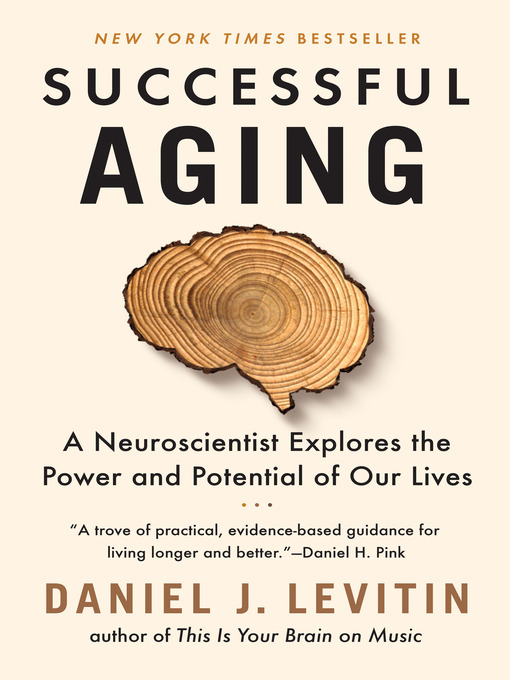
Successful Aging
A Neuroscientist Explores the Power and Potential of Our Lives
کتاب های مرتبط
- اطلاعات
- نقد و بررسی
- دیدگاه کاربران
نقد و بررسی

October 1, 2019
An enthusiastic review of old and new research into the means of extending life. Neuroscientist Levitin (Emeritus, Psychology and Neuroscience/McGill Univ.; A Field Guide to Lies: Critical Thinking in the Information Age, 2016) emphasizes "that it is the interactions of genes, culture, and opportunity that are the biggest determinants of the trajectory our lives take; how our brains will change; and whether or not we'll be healthy, engaged, and happy throughout the lifespan." He adds that since our years are divided into what he calls "healthspan" and "diseasespan," we should aim to prolong the former. As background, he devotes more than half the text to a fine overview of brain function, human physiology, and psychology that supports his point. Good genes are necessary but not sufficient; upbringing and environment play an essential role, and both work best if one takes advantage of opportunities. Real science books have minuscule audiences compared with books that promise the secrets of perfect health; Levitin, a genuine scientist, aims to enjoy the best of both worlds. Some of his breathless prescriptions are old favorites--happy people live longer; eat mostly plants; have lots of friends; don't retire--but he relies heavily on legitimate science, so readers will encounter life-extenders supported by studies (although not in humans) such as calorie restriction, metformin, and rapamycin, as well as long-in-the-tooth favorites like antioxidants and fish oil, which he advocates for while admitting that recent studies are not impressive. Warning against popular nonsense, the author nevertheless includes a generous selection of nutrients, lifestyles, and pharmaceuticals supported by little more than reasonable theories or obsessively health-conscious colleagues. Levitin seems to underestimate his skill as an educator, and he has written a lucid explanation of brain and body function. His longevity advice has plenty of competition, especially David Sinclair's Lifespan, but this book's breadth is impressive. Excellent popular science in the service of fending off aging.
COPYRIGHT(2019) Kirkus Reviews, ALL RIGHTS RESERVED.

December 1, 2019
Perhaps the necessary first step towards achieving a high-quality, healthy long life is a simple attitude adjustment. Shed the somber view that aging is an inevitable failure of the body and mind. Instead, cultivate a positive perspective, since optimism actually forecasts longevity. Neuroscientist and psychologist Levitin supplies some background science and recommends many behavioral modifications that may increase healthspan, the length of life in which an individual enjoys good health. Topics include chronobiology (the body's internal clocks and rhythms), cognitive impairment and dementia, diet, diminished senses (visual impairment, hearing loss), effects of aging on the brain, emotions, exercise, memory, and pain. Choices can be hard, and lifestyle changes are especially difficult to implement in advanced age. When is it no longer safe for you to drive? When should you stop getting up on a ladder to change a light bulb? Levitin believes the most important factors in predicting how well we might age are conscientiousness, our childhood experiences, exercise (especially outdoors), and social interactions. His most sage suggestion, nestled at the end of the book, is timeless: "Practice gratitude for what you have."(Reprinted with permission of Booklist, copyright 2019, American Library Association.)

August 1, 2019
As you might expect, the author of the New York Times best sellers This Is Your Brain on Music and The Organized Mind has a lot to say about what happens when our brains age. He cites the years after 60 as a unique developmental stage with its own distinctive advantages and challenges and shows us how to make the best of them. Almost like neuroscientific self-help.
Copyright 2019 Library Journal, LLC Used with permission.

























دیدگاه کاربران